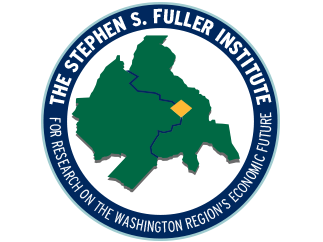From The Washington Business Journal:
If economic growth were a foot race, Greater Washington would clearly be getting winded — its gross regional product has grown less than any of the top 15 metro areas since 2010.
That puts the region well below Boston, Atlanta, Seattle, Houston and Dallas, according to the most recent study by local economist Stephen Fuller, head of the Stephen S. Fuller Institute at George Mason University.
This study is just the latest in a series that sounds the alarm on Greater Washington’s future, saying its growth is slipping as it fails to build upon and expand its base of high-paying professional jobs outside the federal government and its spending. As federal spending continues to stagnant and other cities see economic booms, the region falls further behind its peers in economic growth and public perception, he says.
“Clearly the region has a healthy economy, but it has been underperforming since federal spending growth stopped,” Fuller said, adding that the region is not declining, but growth has definitely slowed. “Time isn’t on our side.”
Some of the indicators Fuller analyzed include:
- Income growth per person. Greater Washington was No. 4 in the nation behind Los Angeles, Miami and Phoenix from 2000 to 2006, but is now No. 15 among top metro areas.
- Foreign investment attractiveness. Before the great recession the Association of Foreign Investors in Real Estate ranked Greater Washington as the second-best region for foreign investments in its top five list. Now it doesn’t make the list.
- Job growth. Greater Washington’s three-year average before the recession placed it seventh among the top 15 metro areas. Greater Washington is now at the bottom of the 15 metros for job growth across three years.
The report also highlights issues previously raised by Fuller, including the region seeing more people move domestically away from the region than move to it and the region’s replacement of higher-paying jobs with lower-wage work such as hospitality and retail.
“How do you build the workforce of the future when you are losing population to the rest of the country?” Fuller said.
All of this comes as the region becomes more expensive to live in, Fuller added, which will only serve to make it less attractive to people who have a choice. And for skeptics who look around and see a vibrant, growing Greater Washington, Fuller said data will continue to show these troubling trends.
“At some point the fact that we are creating more jobs with lower wage structures is going to show up in a weaker housing market. It will start showing up somewhere else,” Fuller said. “Some of this takes time. But enough time has passed where we can see more and more of the consequences.”
View the full story ›
Copyright Washington Business Journal, reprinted with permission
